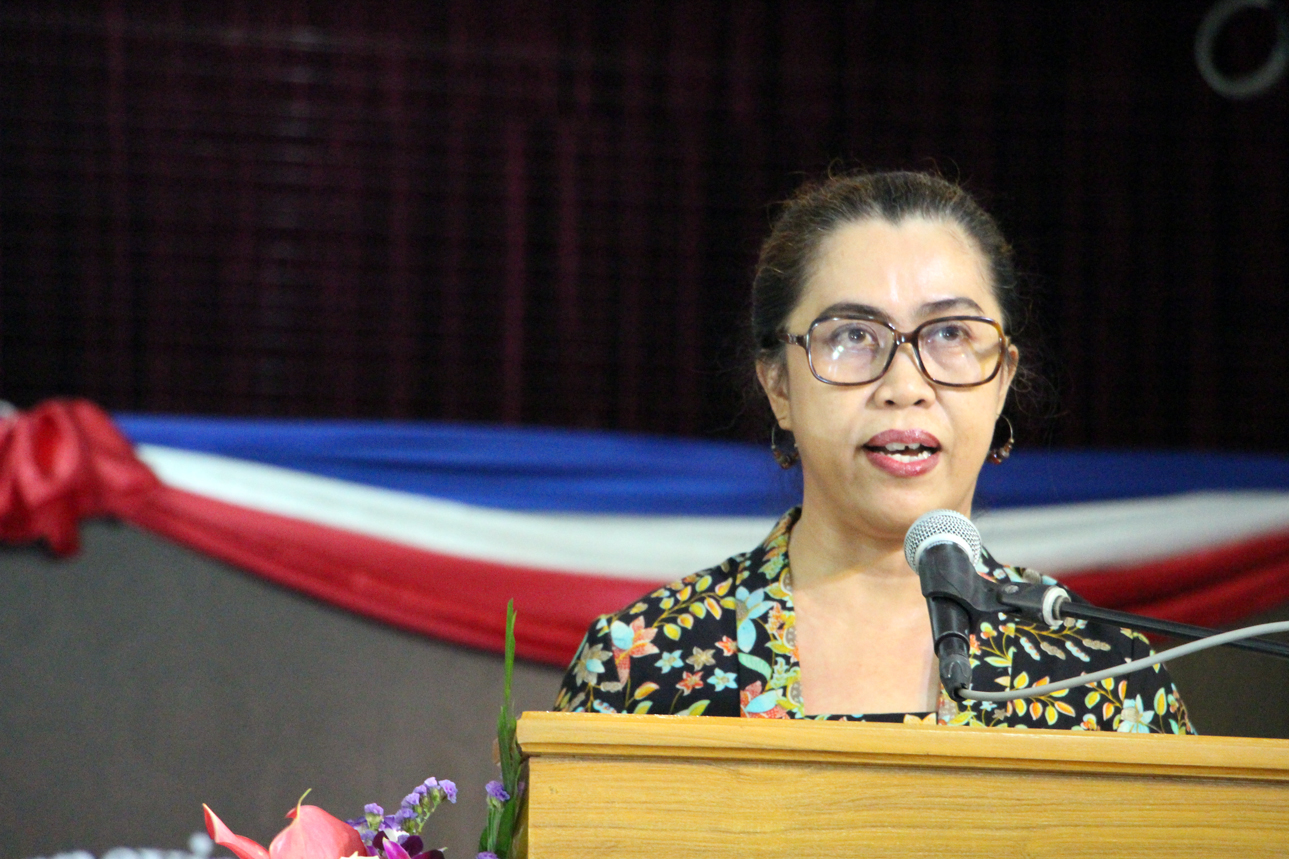Indonesian missiologist says dance is a metaphor of the Cross and mission

Rev. Dr. Septemmy Lakawa says dance symbolises the role of arts in healing trauma of those who witness acts of violence.
Jakarta Theological Seminary professor and a missiologist from Indonesia Rev. Dr. Septemmy Lakawa told the Asia Mission Conference in Yangon that dance symbolises the role of arts and of communities in healing trauma suffered by Christians who witness violence.
Speaking on October 16, the fifth day of the conference in Yangon, Myanmar, she said, "Dance is an artistic form embodying the spirituality of the cross – it is a broken symbol, the beauty that testifies to the wound."
While citing stories of three women victims of human trafficking, she focussed on the social and historical dimensions of trauma. She offered the perspective of the cross as a multifaceted site of wound, rupture, resilience and resistance which contests the understanding of the cross as merely a site of redemptive suffering. As a site of rupture, the cross stands as a stark reminder that suffering remains.
For Dr Lakawa, mission as embodying the spirituality of the cross begins at the site of the disembodied lives of the victims, survivors and witnesses of traumatic violence and continues as churches and Christian communities bear witness to the trauma that affects people because of violence, discrimination and war.
"At the site of resilience and resistance we will encounter troublemakers," said Dr Lakawa. Citing the parable of the widow from chapter 18 of Luke's gospel, she said, "The widow is a 'troublemaker' who caused the unjust judge to feel uncomfortable and thus grant her justice. Perhaps, we need this approach now. To be 'troublemakers' means to be 'peacemakers'. To be in mission in Asia now means to embody a spirituality of resilience and resistance – to be 'troublemakers' for peace, justice and healing.
Referring to the sentencing of former Indonesian governor Ahok for blasphemy in the Muslim-majority country, she pointed to the increasing influence of religious radicalism in the public sphere. She called upon churches and Christian communities to be a witnessing community whose life is oriented towards shaping, creating and participating in a just and peaceful community across boundaries.
Performing an Indonesian fusion dance at the end of her presentation, Dr Lakawa showed how the dancer testifies to the presence of the Holy Spirit through her breathing in and breathing out. In conclusion she said, "Let us dance with churches, communities across differences to witness to the possibility of life, justice, peace and healing in our own contexts and beyond".










